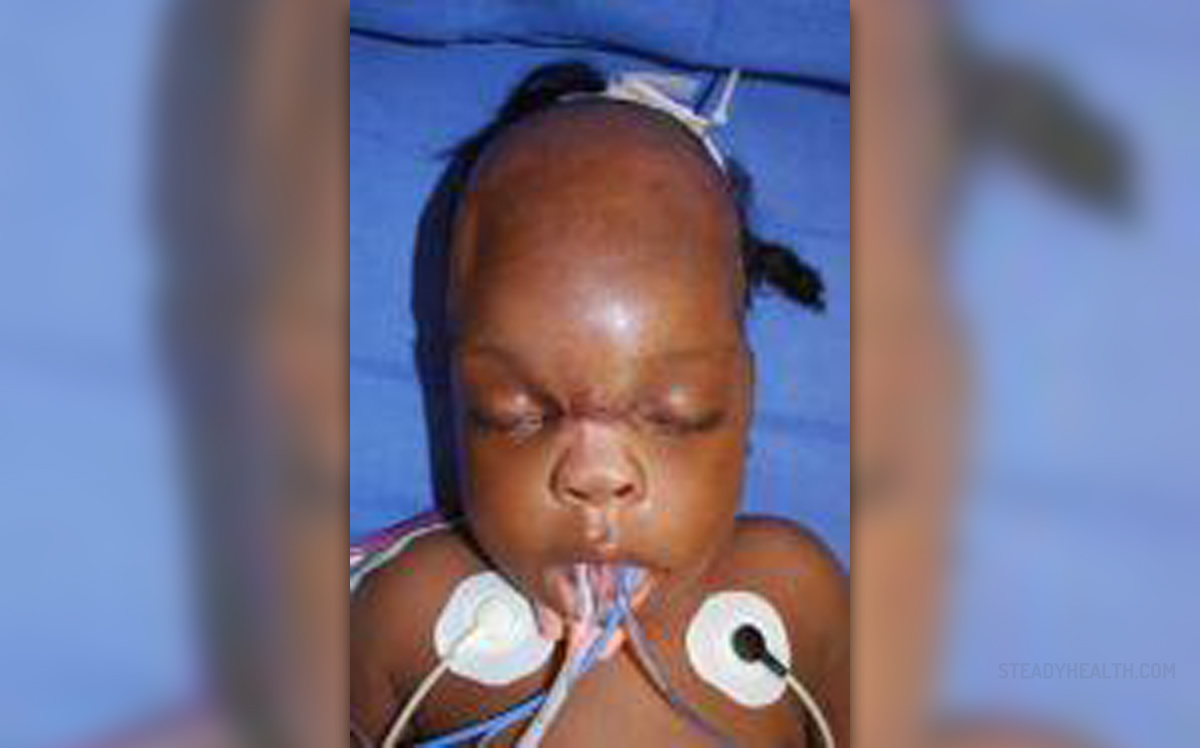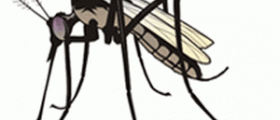
Encephalitis is an acute inflammation of the brain, often caused by viral infection. In most cases, encephalitis causes flu-like symptoms and in many cases even goes unnoticed. In more severe cases, patients with encephalitis will experience strong headaches, fever, and cognitive changes including confusion, fatigue, drowsiness, sensory problems, and problems in movement. Rarely, encephalitis can be so severe that it may even endanger patient’s life. Knowing what causes encephalitis and recognizing the symptoms on time can help to prevent any kind of complications and possibly save child’s life.
Causes of encephalitis
In most cases, encephalitis is caused by herpes simplex virus type I (HSE). This disease sometimes occurs as an effect of an acute infection, but it may also happen as a manifestation of a latent infection. Herpes simplex virus usually stays dormant in the body of a carrier and therefore it causes the sequelae of a latent infection. Other viral causes include flaviruses, St. Louis encephalitis or West Nile virus, Togaviridae, Eastern equine encephalitis, Western equine encephalitis or Venezuelan equine encephalitis. Bacterial causes are syphilis, toxoplasmosis, malaria, or primary amoebic meningoencephalitis, Lyme disease and or Bartonella henselae.
Encephalitis symptoms in children
As already mentioned, encephalitis can be completely asymptomatic in many cases. However, if the symptoms occur they are usually defined as severe headache accompanied by fever, strong aches in muscles and joints all over the body, general fatigue and weakness, and other flu-like symptoms. If a patient feels severe headache and fever accompanied with alterations in consciousness, confusion, agitation and obvious changes in personality, medical care is required. These severe cases are also characterized by loss of sensation or even paralysis in some parts of the body, seizures and general weakness in the muscles, and often accompanied by hallucinations, problems with speech and senses, double vision, perception of foul smells and even complete loss of consciousness.
Signs and symptoms of encephalitis are sometimes hard to determine, especially if a patient is very young, a child or an infant. These little patients may not be able to express clearly what kind of medical disturbances they are experiencing. Parents and care givers should watch carefully for the signs of encephalitis to avoid misinterpreting the obvious symptoms as manifestations of some other, milder disease. Infants with encephalitis will develop a bulge on the soft spots of their skull. Their body will usually be very stiff and they may cry inconsolably. The crying often worsens when the bay is picked up, and child may begin to vomit, or complain of nausea (if it is older). Poor feeding is also one of the main symptoms of encephalitis in children.
















Your thoughts on this
Loading...